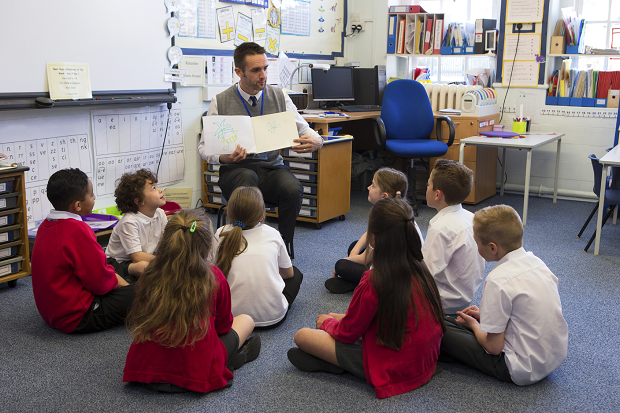
Today, our blog looks at the importance of assessments in schools, as well as the activity passport and more stories from over the Easter weekend.
SATs
Last Tuesday, 16 April, the Labour Party leader Jeremy Corbyn outlined his vision for SATs assessments to be abolished under a Labour government. This sparked debate throughout the week about assessment in schools.
In response to calls for SATs to be discontinued, the Education Secretary Damian Hinds wrote an op-ed for the Sunday Telegraph on 21 April, setting out the importance of primary school assessments to ensure that children are developing and progressing in education.
The full op-ed can be read here.
Activity Passport
On Friday 19 April , the Education Secretary Damian Hinds announced that the activity passport for children has so far received 42,000 downloads in just four months. This was covered exclusively by I News.
The Education Secretary launched the activity passport in December 2018, to encourage children to try new activities and discover new hobbies.
Education Secretary Damian Hinds said:
The activity passport is a way for children to channel their natural curiosity into experiencing new things or places, while also preparing them for the challenges life throws at us all by developing valuable skills like confidence, tenacity or commitment.
When I visit schools or organisations around the country, a common quality I see among children is their enthusiasm to try new activities that challenge them – and ultimately how they learn to do things they never knew they could do.
With thousands of passports downloaded – the equivalent of 16 times every hour since it launched - I’m hopeful that even more families will use the passport as inspiration for spending quality time together.
Teacher Spending
On Friday 19 April , the NASUWT issued a press release about teachers spending their own money on school resources and pupil necessities, saying that 45% of teachers have purchased necessities for pupils in the last year. This was covered by the Guardian, the Metro and BBC Online.
Minister for Children and Families Nadhim Zahawi said:
There is more money going into our schools than ever before, and since 2017, we have given every local authority more money for every 5 to 16 year old in every school and made funding fairer across the country. However, we recognise the budgeting challenges schools face and have introduced a wide range of practical support to help schools and head teachers make the most of every pound on non-staff costs.
Tackling disadvantage will always be a priority for this government. Employment is at a record high and wages are outstripping inflation, but we know some families need more help. That is why we are making sure that more than a million of the most disadvantaged children are also accessing free school meals throughout their education – saving families around £400 per year.
The Secretary of State has made clear that, as we approach the next spending review, he will back head teachers to have the resources they need to deliver a world class education.
Teacher Protection
On Saturday 20 April , NASUWT put out a press release on violence against teachers, saying that 89% of teachers have suffered physical or verbal abuse over the last 12 months from pupils. This was covered by BBC Online, ITV News, the Telegraph, the Guardian, the Independent and I News.
We have a range of guidance including advice on health and safety, school security and more to help make sure teachers and pupils are safe in schools.
The school behaviour policy should set out how poor behaviour, including violence, is dealt with. Decisions on how to punish pupils is a matter for the school.
A Department for Education spokesperson said:
Teachers and school staff have a right to be safe while doing their jobs and any form of misconduct, particularly violence towards them, is completely unacceptable.
The majority of schools provide a safe environment for pupils and teaching staff, and it’s important that they remain as such.
We are committed to tackling bad behaviour in schools have made great strides in empowering teachers to tackle this issue and have recently announced a £10 million investment to support schools to share best practice in behaviour management.
Teacher Workload
On Sunday 21 April, the National Association of Schoolmasters Union of Women Teachers (NASUWT) released a press notice on teacher workload, saying that teachers feel work related emails are driving up their workload and invading their home life. This was covered by the Independent and the Observer.
A Department for Education spokesperson said:
The Education Secretary has set out his determination to support school leaders in reducing teacher workload and we have taken a range of actions to do this. Our recruitment and retention strategy also sets out how we will help headteachers establish supportive school cultures.
We have worked with school leaders and teachers to create a workload reduction toolkit, which provides materials to help leaders and teachers review tasks associated with communications in schools, including an example school email protocol.
As well as this, we have recently published the EdTech strategy which challenges the sector to support flexible working practices within schools including minimising the need for emails.
T Levels
Yesterday, Monday 22 April, the Times published a series of articles on the upcoming implementation of T Levels – the new technical equivalent for A Level qualifications in England.
One particular piece featured the Education Secretary Damian Hinds’ views on how T Levels can create a parity of esteem between technical and academic study, by offering a high quality and valued qualifications, which meets the modern demands of employers.
You can read the full article here.
Follow us on Twitter and don't forget to sign up for email alerts.